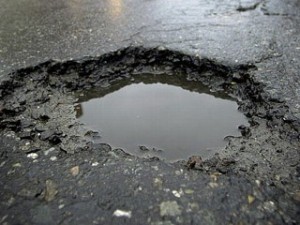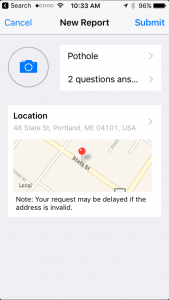A client of our South Portland Maine insurance agency recently returned after wintering in the Caribbean. She shared the story of a friend who fell on the island, breaking her leg. Fortunately, the travel insurance the couple had purchased saved the day – and thousands of dollars. The injured woman’s husband called the travel insurance company from the parking lot where his wife fell. Within 10 minutes, an ambulance arrived to transport her to the local hospital, where she was evaluated and stabilized. Once it was determined that her leg was broken, they wanted to return home for surgery and recuperation.
The next day, a private jet flew them from the island to their local airport, where an ambulance transported them to the hospital. The bill for the island hospital stay and medical evacuation to the U.S. was over $25,000. Travel insurance paid for nearly all of it. Without travel insurance, they would have been on their own to navigate the medical system of a foreign country. They may not have been able to afford to go home as quickly as they did, either.
Are you planning a big trip? Consider buying travel insurance. High end vacations require a lot of advance planning. Sometimes, the unforeseen happens between your deposit deadline and your travel date. If your plans change or if the provider is unable to fulfill the trip, it could mean a significant cost to you. Vacation insurance protects you against the financial impact of some of the things that can go wrong on vacation.
What Does Travel Insurance Cover?
Policies differ, but most of “package travel insurance” policies provide some coverage for:
- Trip Cancellation
- Trip Interruption
- Missed Connection Flight Change Charges
- Medical Expenses for Emergency Accident or Sickness
- Emergency Medical Evacuation Expense
- Baggage Delay, Loss and Theft
The amount of each coverage varies from policy to policy. Some programs also allow you to add optional limits and coverage.
How Much Does Travel Insurance Cost?
The cost of travel insurance depends on:
- The cost of your trip;
- Your destination;
- Age of travelers;
- Method of travel;
- Travel dates;
- Level of coverage you choose.
For example, the cost to insure a $3,700 cruise to the Caribbean for a 50-year old lasting two weeks could cost as little as $161 per person.
What is Commonly Excluded from Travel Insurance Policies?
- Certain cancellation reasons (e.g. work, “change of heart”, etc.);
- Injuries sustained in sports activities;
- Identity Theft;
- Political Evacuation;
- Pre-existing Conditions (unless you purchase coverage shortly after making your travel deposit).
Many programs allow you to “buy back” these coverages.
3 Questions to Ask When Considering Travel Insurance
- Does my medical insurance cover me outside the U.S.?
- Do my credit cards protect me from trip cancellation?
- Does my auto insurance protect me where and when I travel?
If you live in Maine, travel insurance is available from Noyes Hall & Allen Insurance in South Portland. We’re happy to answer your questions and help you evaluate whether travel insurance is right for you. Contact a Noyes Hall & Allen insurance agent at 207-799-5541.




